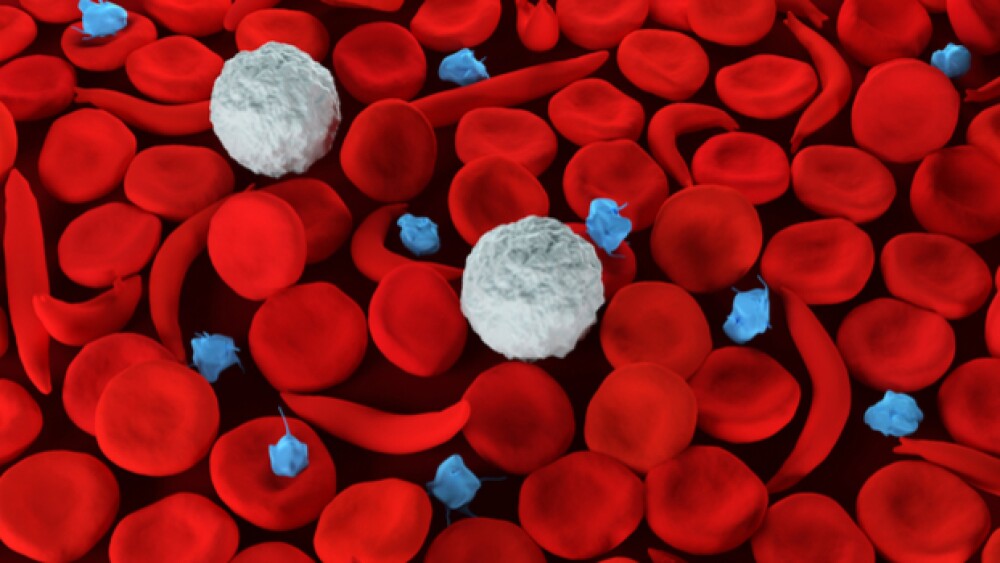Ted W. Love, president and chief executive officer of GBT, called the approval of Oxbryta a major milestone for the company and for patients with sickle cell disease.
Shares of South San Francisco-based Global Blood Therapeutics continue to climb in pre-market trading after the U.S. Food and Drug Administration (FDA) approved the company’s sickle cell disease medication, Oxbryta, late Monday.
The company’s stock closed up more than six points Monday at $59.95 and is up about 11% to $66.50 in early trading today. The FDA granted accelerated approval under priority review for Oxbryta (voxelotor) tablets for the treatment of sickle cell disease (SCD) in adults and children 12 years of age and older. This is the first-approved treatment that directly inhibits sickle hemoglobin polymerization, the root cause of SCD, Global Therapeutics (GBT) said in its announcement. The medication is expected to be available to patients within two weeks through the company’s specialty pharmacy partner network. The treatment has a list price of about $125,000 annually.
Ted W. Love, president and chief executive officer of GBT, called the approval of Oxbryta a major milestone for the company and for patients with sickle cell disease. The newly-approved medication “embodies GBT’s commitment to develop and deliver innovative medicines for patients with overlooked, life-limiting chronic diseases,” Love said in a statement.
Sickle cell disease, which affects an estimated 100,000 people in the United States, is caused by a genetic defect in the gene that codes for hemoglobin that causes red blood cells to have a sickle shape. That, in turn, affects how they carry oxygen. The diminished oxygen delivery to tissues and organs can lead to life-threatening complications, including stroke, blood clots, infections and irreversible organ damage. GBT’s approval comes less than two weeks after the FDA green lit Novartis’ Adakveo for pain events associated with sickle cell disease. When the sickle-shaped cells cluster in the bloodstream, it can cause acute pain episodes called vaso-occlusive crises.
Oxbryta is an oral, once-daily treatment for SCD that works by increasing hemoglobin’s affinity for oxygen. The drug blocks polymerization, which is what causes the sickling and destruction of red blood cells.
The accelerated approval of Oxbryta is based on clinically meaningful and statistically significant improvements in hemoglobin levels, accompanied by reductions in red blood cell destruction (hemolysis). Data from the Phase III HOPE trial showed that, after 24 weeks of treatment, 51.1% of patients receiving Oxbryta achieved a greater than 1 g/dL increase in hemoglobin compared with 6.5% receiving a placebo. The trial also showed that there were numerically fewer vaso-occlusive crises.
The U.S. Food and Drug Administration (FDA) granted the drug Breakthrough Therapy, Fast Track, Orphan Drug and Rare Pediatric Disease designations for sickle cell disease.
As a condition of accelerated approval, GBT will continue to study Oxbryta in the HOPE-KIDS 2 Study, a post-approval confirmatory study using transcranial doppler (TCD) flow velocity to demonstrate a decrease in stroke risk in children 2 to 15 years of age. The study will be initiated by the end of the year.





